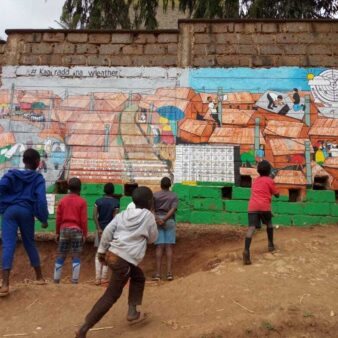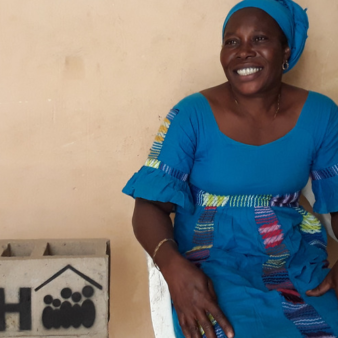Sanitation is a growing problem in Argentina, where six million people (almost one-in-seven of the population) do not currently have a bathroom inside their home. Four million people live in informal settlements, where less than one-in-twenty (4.85%) of the population has access to sanitation.
This lack of sanitation, and resulting poor hygiene practices, adversely affects people’s health, general wellbeing and life expectancy. Acute diarrhoea is one of the leading causes of illness and death in children under five.
Since 2015, Módulo Sanitario has been working to address the sanitation deficit in informal settlements in Argentina by installing prefabricated bathroom and kitchen cabins in people’s homes. This reduces the spread of disease, improving the lives of families from vulnerable communities and helping to break the cycle of poverty caused by the impact of poor living conditions on health and education outcomes.
Since its inception, Módulo Sanitario has installed more than 650 sanitary cabins, directly benefitting 2,665 people in both periurban and rural areas. Around one-in-three of these beneficiaries used to share the bathroom facilities with other households, so a further 900 people have benefitted indirectly. When COVID-19 reached Argentina, Módulo Sanitario began distributing hygiene kits – containing soap, shampoo, toothbrush, toothpaste, bleach and detergent among other items. In total, over 17 thousand kits were distributed, reaching around 64,000 people.
The project is one of seven programmes run by not-for-profit foundation Horizonte de Máxima. Módulo Sanitario currently has 10 staff members and works with more than 1,000 volunteers per year.
The project in practice
Módulo Sanitario is the only civil society organisation in Argentina dedicated exclusively to sanitation. Its vision is a future in which everyone has access to basic sanitation services and where every house has access to clean drinking water.
The project has its administrative headquarters in Buenos Aires and works permanently in eight vulnerable neighbourhoods in Greater Buenos Aires and in three in Córdoba province. Through collaborations with other NGOs, Módulo Sanitario has expanded its work to a further eight provinces, 20 cities and 26 neighbourhoods in Argentina.
In the areas where Módulo Sanitario currently works, one-in-twenty-five (4%) of the population is connected to a sewerage system. Most people living in these communities have limited access to education, usually to primary school level or less. This makes it difficult for them to gain formal employment and many families depend on social support from the government.
Módulo Sanitario surveys homes in these communities to establish which households are in greatest need of space for personal hygiene and safe food preparation. Allocation is also based on the expressed commitment of families to the project and the available budget. Households do not need to own the land to participate in the programme as the cabins stand on wooden piling and, if the household needs to move, the cabin can move with them.
Beneficiaries are active participants in the programme, working closely with Módulo Sanitario volunteers before and during the build. Before construction begins, they are required to build a four-metre-deep septic tank and contribute 11% of the total cost of the cabin (around $8,500 AR or $90 USD). This is a significant amount and is intended to secure the commitment and sense of ownership of families. The fee can be paid off in as many instalments as necessary during a three-month period before construction begins.
The sanitary cabins are prefabricated off-site in a dedicated factory. Módulo Sanitario volunteers attend an installation workshop to learn how to assemble water pipes, make thermo-fusion welding installations, assemble sewerage kits and prepare materials and tools needed in construction. This preliminary work makes the on-site construction a simple two-day assembly process carried out by volunteers and the beneficiary households.
The cabins have a lifespan of at least 10 years and include hot and cold-water facilities, drainage, electricity, sink, space for an oven, hand-washing sink, toilet, shower and heating. The model is flexible according to the challenges of each location. For example, where there is no electricity, solar water heaters are used, and where it is not possible to place a septic tank, a biodigester is installed instead.
Each household is given a ‘hygiene kit’ and shown good hygiene habits to reduce disease and infections. During construction, a specialised team of volunteers provides workshops and activities specifically for children in order to get them into the habit of hand washing, tooth brushing, personal and home hygiene.
Módulo Sanitario is run in a collaborative way and volunteers are a key component of the programme. More than 1,000 people donate their time to the programme each year, recruited mainly through word of mouth, social networks, digital marketing campaigns and public talks. Partnerships with local governments, civil society organisations and private companies are central to the continued success and expansion of the programme.
Funding
Módulo Sanitario was established in 2015 without any initial investment. In 2020, the programme’s budget was $22.074.826 AR ($ 234,170 USD) and came from the following sources.
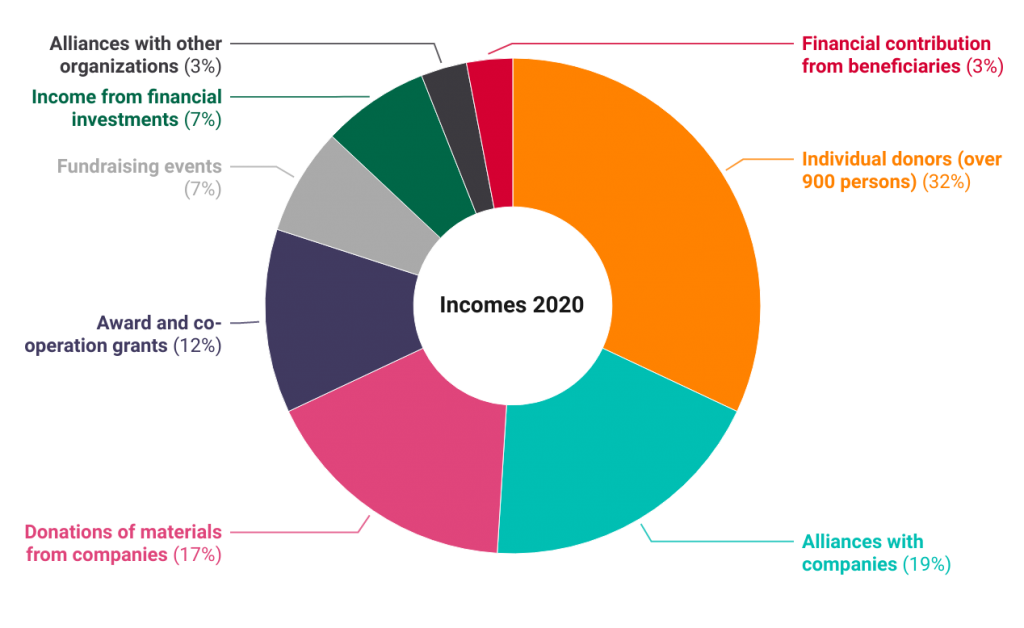
Social and environmental impact
Módulo Sanitario evaluates the social impact of its work through a recently developed survey. Through the programme’s work, the beneficiaries’ quality of life and overall health has improved. Having a sanitation cabin inside the home increases the frequency of hand-washing, showering, washing of vegetables and dishes, and brushing teeth.
These improvements in daily personal hygiene dramatically reduces the transmission of diseases, such as diarrhoea, cholera, dysentery, hepatitis A, typhoid, and polio. Better health leads to an increase in school attendance, improved sleep and social interactions and increased chances of employment, helping to break the cycle of poverty.
During construction, beneficiaries are trained to maintain and clean their cabins, as well as to make repairs if needed. These skills reduce the need to hire external workers in the future.
The materials used in the construction of the cabins are selected to ensure the structures are both durable and sustainable. Where funding allows, construction uses different technologies to help positively impact the environment. These include: recycled Tetra Pak coating plates to reduce the use of wood and brick; solar water heaters and dry toilets to reduce water and electricity consumption (however these have been used in just 1% of cases so far); and biodigesters so human waste can be transformed into compost for use in gardens, reducing the use of industrial fertilisers and the negative impact on groundwater.
Transfer and expansion
Módulo Sanitario’s ultimate aim is to solve the sanitation deficit across Latin America, where 120 million people do not have a toilet. As the organisation grows, it hopes to increase its influence on sanitation issues in Argentina and have a positive impact on public opinion and political decisions.
In the short term, Módulo Sanitario aims to increase the scale of its operation by securing $1 million USD for the construction of 1,600 sanitary cabins by 2023 (which would reduce the average cost to USD 623 per module versus USD 806 currently). Transfer of the programme is key to its expansion, and this is achieved through three models :
The first is the free availability of Módulo Sanitario’s manuals and plans, so the construction model can be replicated by anyone who wants to build a sanitary cabin on their own. Módulo Sanitario does not, however, provide any follow-up support, training or monitoring.
The second model is social franchise. These partners use Módulo Sanitario’s brand and approach, with training and audits carried out by Módulo Sanitario. Franchises are independent and part of the organisation’s mission only on a voluntary basis. This transfer model is currently at the early stages with a group of volunteers in Córdoba province, where they installed five cabins in 2020 and plan 10 more in 2021. Discussions with interested franchise partners are also taking place in the Argentinian province of Santa Fe, as well as in Uruguay and Guatemala.
The third model is contracted delivery under which Módulo Sanitario provides the physical cabin and their partners (public sector entities and NGOs) oversee the social management and financing. This model is currently the most successful, with 33 agreements and 244 cabins delivered.
Sanitation is a neglected and urgent issue which directly impacts the health and prospects of vulnerable communities. By adopting a collaborative approach and gaining the support of public and private institutions as well as individuals, Módulo Sanitario is steadily working towards the democratisation of the bathroom in Latin America and improving the lives of millions of people living in poverty.


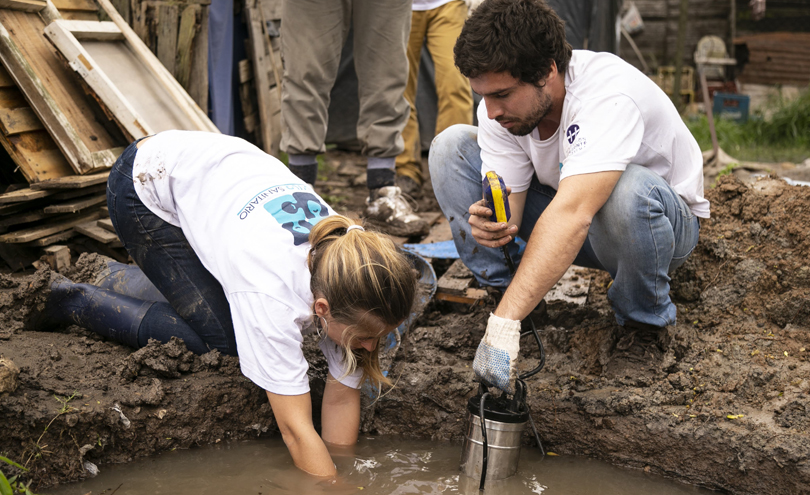
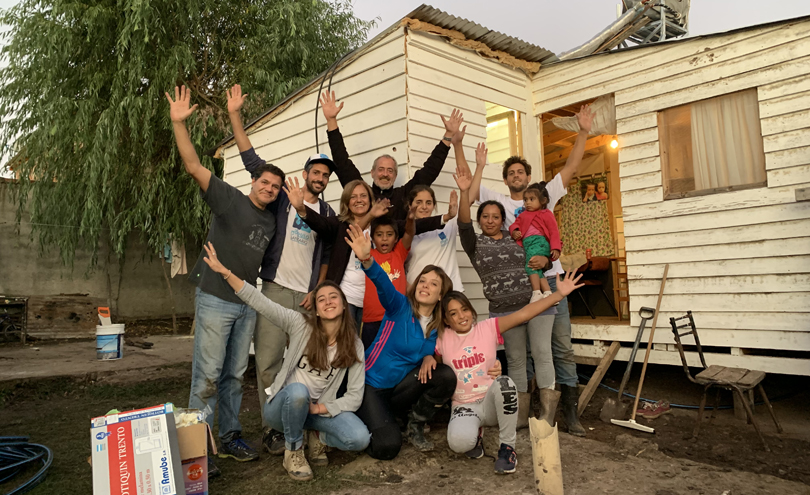

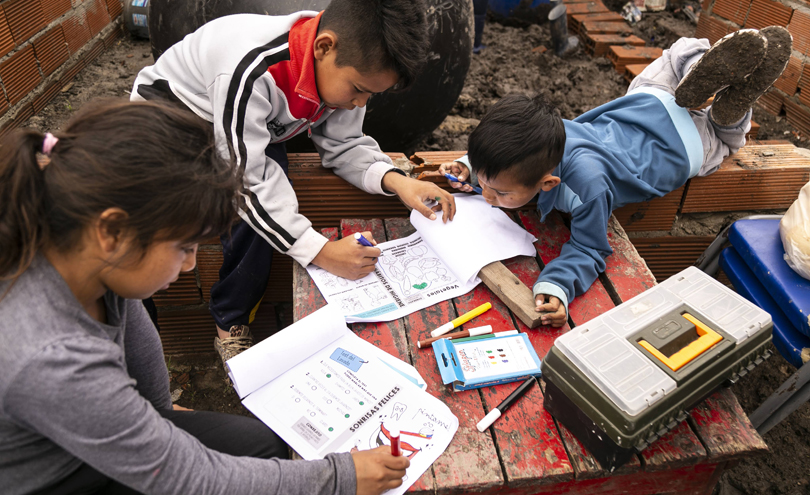
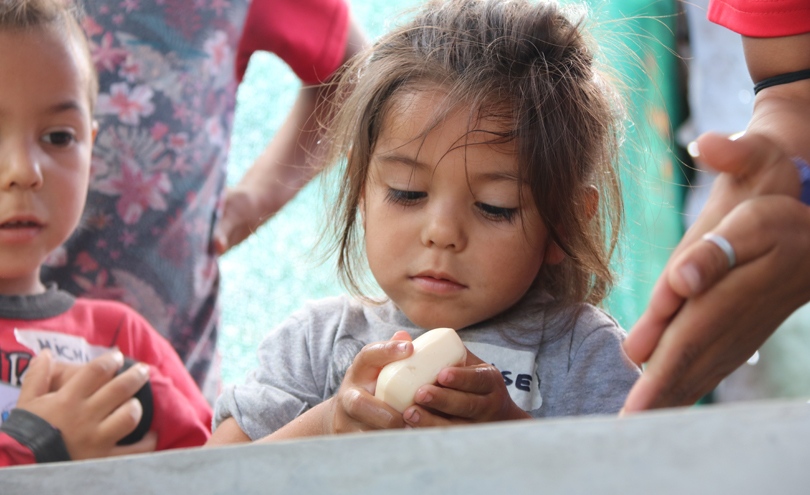
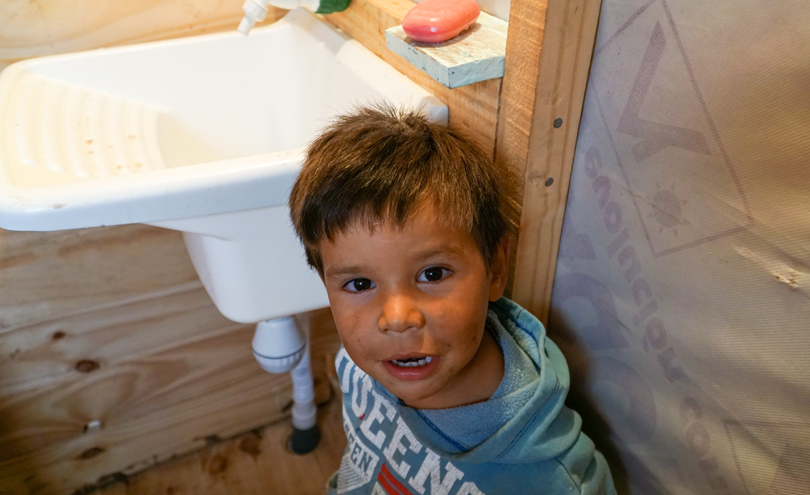

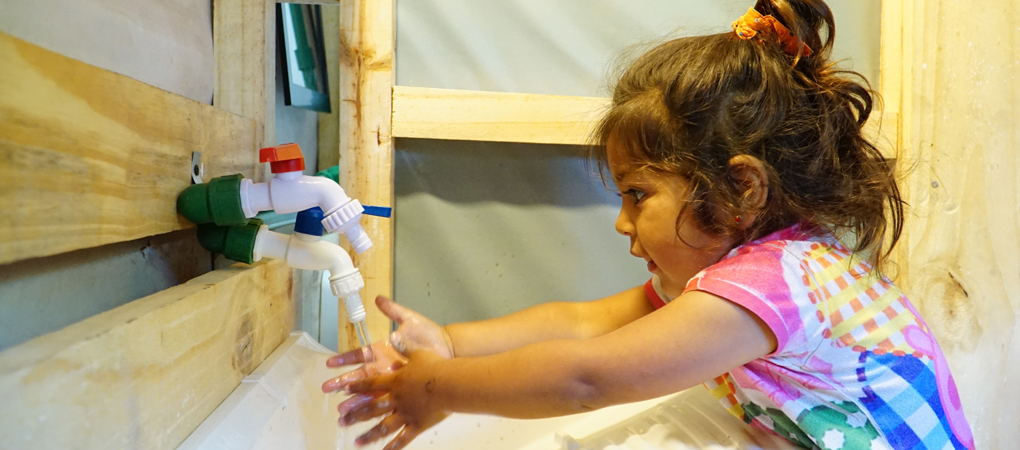
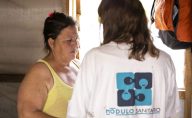
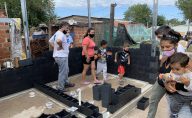
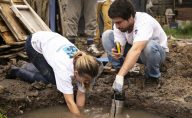
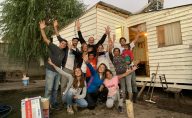
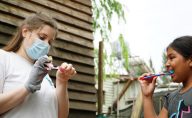
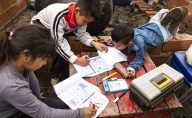
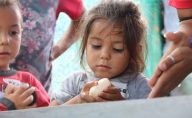
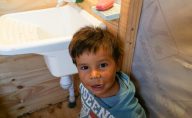

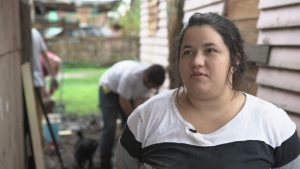 “You may lack anything, but a bathroom is essential. You need it.”
“You may lack anything, but a bathroom is essential. You need it.”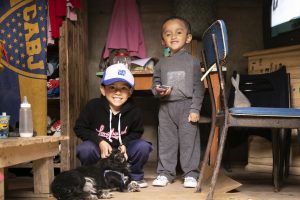 It was not until he was six years old that Kevin gained the stability and strength to undergo heart surgery, yet, they lacked something essential to his recovery: a clean, dry bathroom with hot water where he could go through his post-surgical treatment, to allow him to live the rest of his childhood.
It was not until he was six years old that Kevin gained the stability and strength to undergo heart surgery, yet, they lacked something essential to his recovery: a clean, dry bathroom with hot water where he could go through his post-surgical treatment, to allow him to live the rest of his childhood.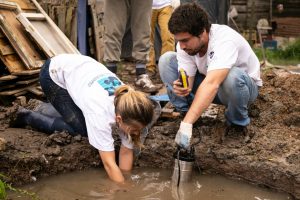 During two days, the team was able to build the bathroom, but they couldn’t find a way to drain the well, which made it impossible to install the biodigester that connected to the facility. In the face of this unfortunate situation, and without a drainage pump, Ana took a bucket and started to empty the huge well by hand. Seeing her, a volunteer told her it was completely useless trying to drain the well that way. Nonetheless, she was determined to do whatever it took to give her children a bathroom, and without stopping, she answered: “Come on. Come on, we’ll finish it.”
During two days, the team was able to build the bathroom, but they couldn’t find a way to drain the well, which made it impossible to install the biodigester that connected to the facility. In the face of this unfortunate situation, and without a drainage pump, Ana took a bucket and started to empty the huge well by hand. Seeing her, a volunteer told her it was completely useless trying to drain the well that way. Nonetheless, she was determined to do whatever it took to give her children a bathroom, and without stopping, she answered: “Come on. Come on, we’ll finish it.”